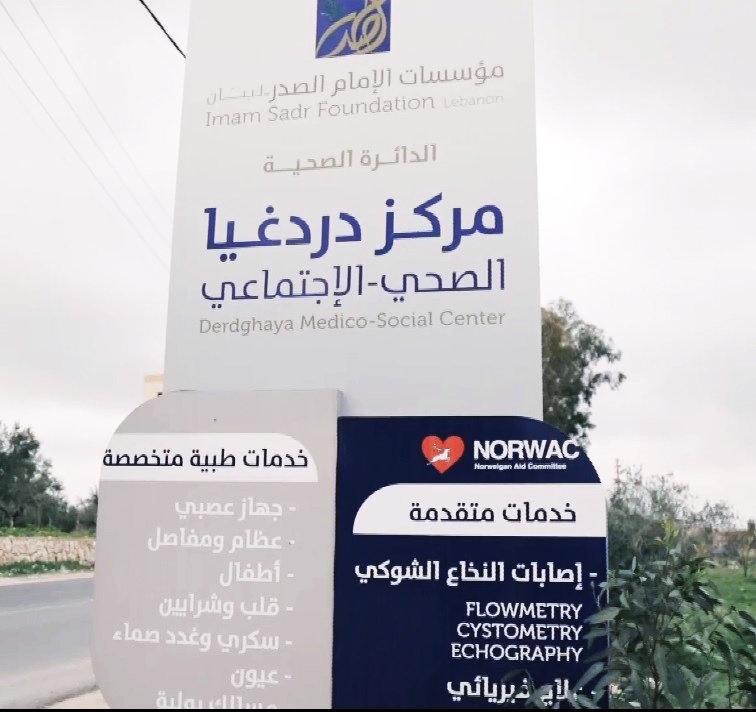A glance at Imam Sadr’s Derdghaiya medical center

It was the spring of 2018 when we visited Derdghaiya health care center, standing on the heights of the southern province of Lebanon. The medical facility was established by the Imam Sadr Foundation in 1987.
The clinic puts patients at ease by offering a pleasant location, cleanliness and even fruit trees in its small yard.
We became acquainted with nurse Mona Tiba, in charge of the spinal cord rehabilitation department. She was admitted to nursing school in the Islamic University with the support of the foundation the year earlier. Tiba welcomed us with open arms and gave us a tour of the clinic and explained the caregiving offered at the facility.
The clinic provides services for rheumatology, pediatrics, counseling, neurology, general medicine, nutrition, urology, cardiovascular, physiotherapy, immunology, and midwifery. It serves 350 to 400 patients every month.
The clinic is the only healthcare center in the district that offers physiotherapy and spinal cord care affiliated with the Norwegian Group Norvac. The bilateral relationship is important for the transfer of knowledge and technology for treating spinal cord injuries.
The staff of the clinic attends Norvac Group’s specialized workshops every so often. In addition, in 2017, Derdghaiya health care center held three scientific meetings at Hiram hospital in Tyrus, Al Rassoul Al Azam Hospital in Beirut, and at Rahmat rehabilitation hospital in Tripoli.
The second floor of the clinic has rooms with specialized machines for various tests for urinary and bladder ailments suffered by children and adults and expectant mothers.
When a patient loses control of his urination, the clinic offers initial tests and, if necessary, they are referred to specialized hospitals.
The cost of running such tests at the American University of Beirut is around $650, while the clinic only charges $170, and very low-income people pay only $32.
All expenses of the clinics are provided by the Imam Sadr Foundation.
The clinic offers free services to people with disabilities and vaccinations are free.
Each year, around 150 food packages are distributed among those in need during the holy month of Ramadan.
The clinic is also associated with some Christian institutions that provide medicine for patients who are constantly in of such.
To protect the environment the clinic has fridges for the disposal of pharmaceutical waste, and each month the waste is sent to landfills.
Before leaving the clinic, we noticed a couple of tall buildings, sitting adjacent to each other on a hilltop just a bit further away from the clinic, a mosque and a church.
